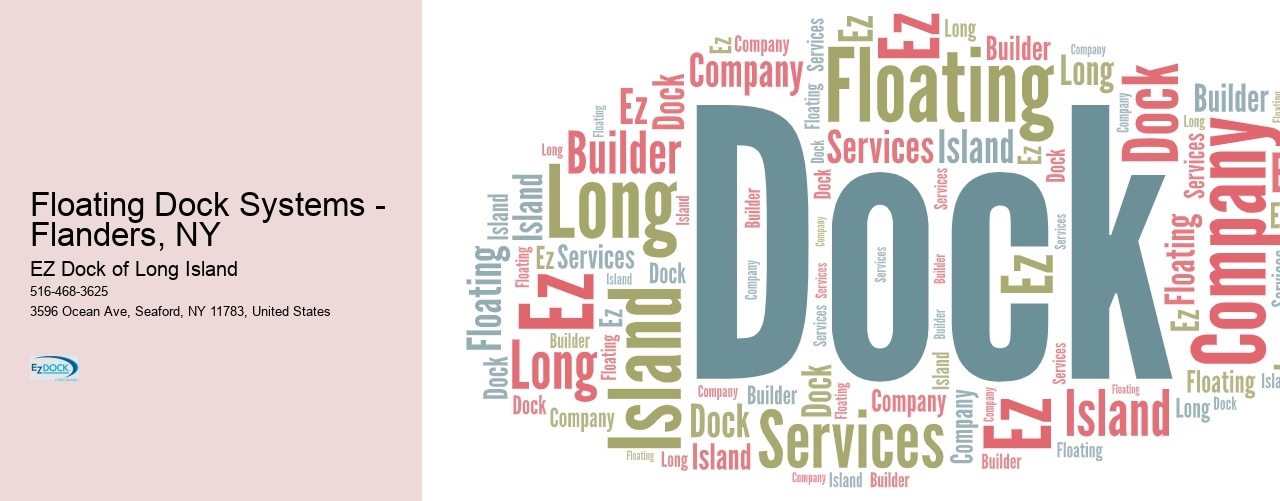

With over 15 years of experience, EZ Dock of Long Island leads the way in delivering cutting-edge floating docking solutions to Long Island’s waterfront communities. Specializing in modular docks, PWC ports, boat lifts, and kayak launches, we offer versatile systems for residential, government, and commercial use. Our docks are designed for easy expansion, ensuring you can enjoy the water to the fullest.
When storing your watercraft on a dock, it’s crucial to select an appropriate spot. You want to ensure that the location is sheltered from harsh weather conditions and strong currents that could damage your vessel. Ideally, choose a part of the dock where wave action is minimal and away from high-traffic areas to avoid collisions with other boats.
Position your watercraft parallel to the dock in a manner that allows for easy access. There should be enough space between your boat and others moored nearby to prevent scratches or dings. Additionally, if you’re docking in tidal waters, account for changes in water level; this will prevent your craft from resting on the dock or getting stuck at low tide.
Securely tie your watercraft using high-quality marine-grade dock lines. Use bow and stern lines to keep it from moving forward or backward, and spring lines to prevent shifting sideways. The knots should be well-practiced like cleat hitches which are reliable yet easy to untie when necessary.
Fenders act as cushions between your boat and the dock, absorbing shock and preventing damage. Hang fenders at points where the boat is likely to make contact with the dock, adjusting their height so they meet the dock at its widest beam. This strategy is essential for protecting both your vessel's finish and integrity.
Periodically inspect all equipment used for docking including lines, fenders, cleats, and any other gear. Look out for signs of wear such as fraying ropes or deflated fenders which could compromise safety if left unaddressed. Replace damaged items immediately to maintain a secure storage environment for your watercraft.
If you plan on storing your watercraft at the dock long-term, additional measures may be needed such as using a cover to protect against sun damage or installing a lift to keep it out of the water altogether when not in use. Regular cleaning will also help prevent fouling organisms from attaching themselves to the hull which can affect performance and longevity.
View Floating Dock Company - Suffolk County in a full screen map
| Service Areas | Amityville, NY; Asharoken, NY; Babylon, NY; Bay Shore, NY; Bayport, NY; Bellport, NY; Blue Point, NY; Brightwaters, NY; Bridgehampton, NY; Brookhaven, NY; Center Moriches, NY; Centerport, NY; Cold Spring Harbor, NY; Copiague, NY; Cutchogue, NY; East Islip, NY; East Marion, NY; East Moriches, NY; East Quogue, NY; East Rockaway, NY; East Setauket, NY; Eastport, NY; Eatons Neck, NY; Flanders, NY; Greenport, NY; Great River, NY; Hampton Bays, NY; Huntington, NY; Islip, NY; Jamesport, NY; Lindenhurst, NY; Lloyd Harbor, NY; Mattituck, NY |
| Entity | Definition |
|---|---|
| Floating Walkway | A floating dock system designed as a walkway over water, often used for access to boats or other areas. |
| Jetty | A structure that extends into the water to protect or direct water traffic, often made of rock, wood, or floating materials. |
| Boat Lift Dock | A dock with a mechanism to lift boats out of the water for storage and maintenance. |
| Marina Dock | A large-scale dock system designed for marinas, offering mooring and access for multiple boats. |
| Swim Platform | A floating platform used for swimming and recreational activities, typically anchored near shorelines. |
EZ Dock" width="853">
Understanding Floating Docks
Floating docks are an essential component for many waterfront properties, providing a stable platform that adjusts with changing water levels. Unlike fixed docks, which are anchored to the bottom and remain at a constant height, floating docks rise and fall with tides and lake levels. They offer versatility for various aquatic environments and activities, from private boat mooring to commercial fishing operations.
Modular Floating Docks
Modular floating docks consist of multiple sections that can be configured and reconfigured to suit different layouts and uses. These dock systems are typically made from durable plastics or metals designed to withstand harsh marine conditions. The modularity offers flexibility in design—allowing for additions, subtractions, or reconfigurations of the layout as needs change over time.
Concrete Floating Docks
For those seeking permanence and durability, concrete floating docks represent a robust option. Reinforced with steel and designed to last decades with minimal maintenance, these docks can endure the most extreme weather conditions. Concrete docks often service large-scale commercial marinas or residential areas where long-term stability is paramount.
Inflatable Floating Docks
A more recent innovation in floating dock technology is the inflatable dock. These portable platforms are perfect for recreational purposes like swimming platforms or temporary boat moorage during outings. Made from high-strength PVC materials, they're lightweight yet sturdy when inflated but can also be deflated for easy storage and transport.
Aluminum Floating Docks
Aluminum floating docks offer a balance between durability and weight. Aluminum resists corrosion naturally, making it ideal for both freshwater and saltwater applications. Its lightness facilitates transportation and installation while providing sufficient strength to support boats, pedestrians, and dock furniture without warping.
Wooden Floating Docks
Wooden floating docks bring traditional aesthetics along with natural warmth not offered by synthetic materials. Typically constructed using treated lumber to resist rotting and marine pests, wooden docks blend seamlessly into rustic environments. Regular maintenance such as staining or sealing is required to preserve their appearance and structural integrity over time.
Customized Solutions by Floating Dock Companies
Floating dock companies recognize that each waterfront has unique requirements based on use case scenarios; hence they often provide customized solutions tailored specifically for individual needs. Whether it's integrating specific features like boat lifts or personal watercraft ports or accommodating environmental regulations—these companies work closely with clients to create optimal docking systems suited precisely for their locales.